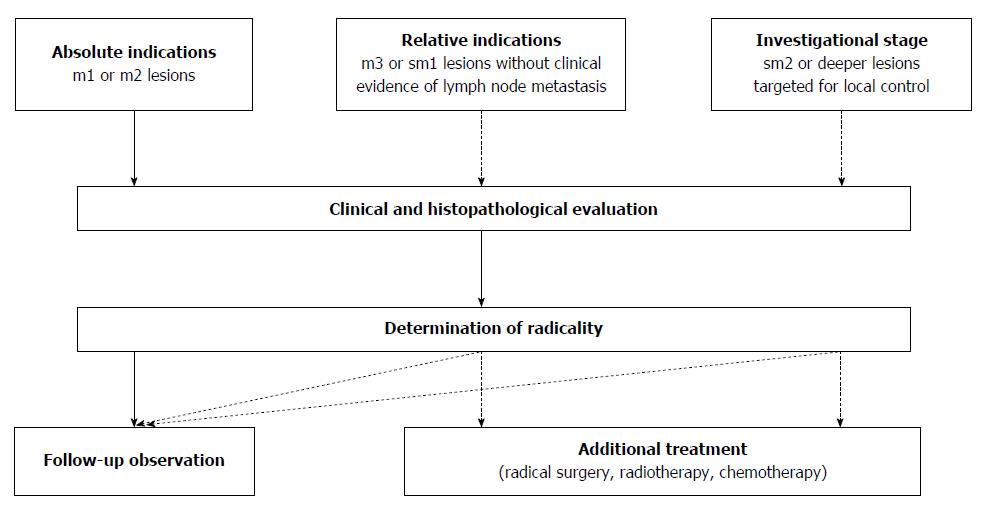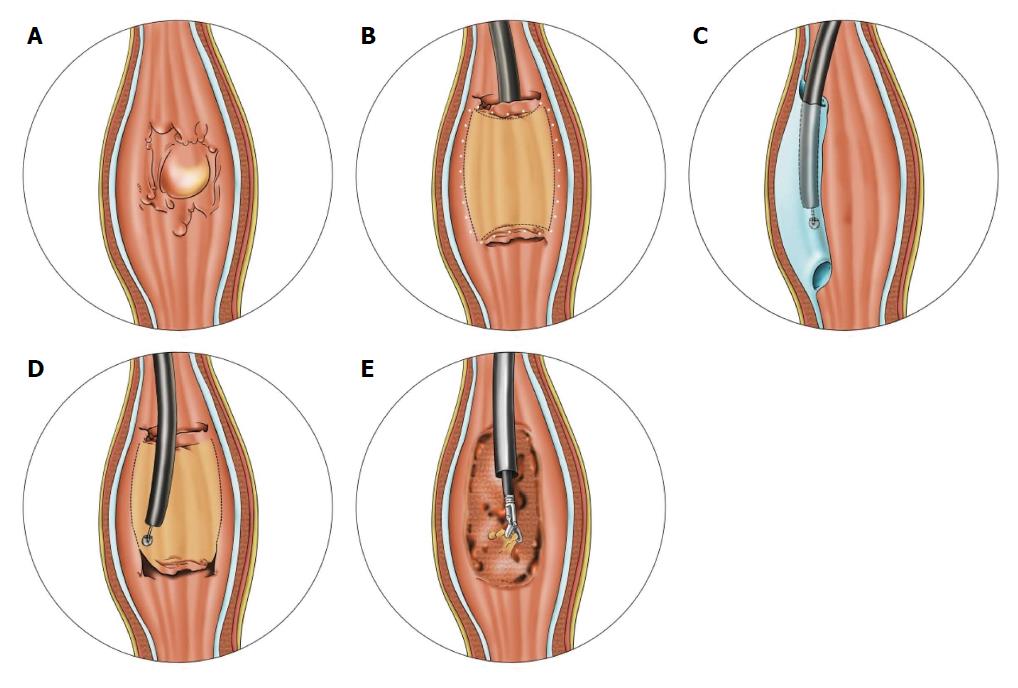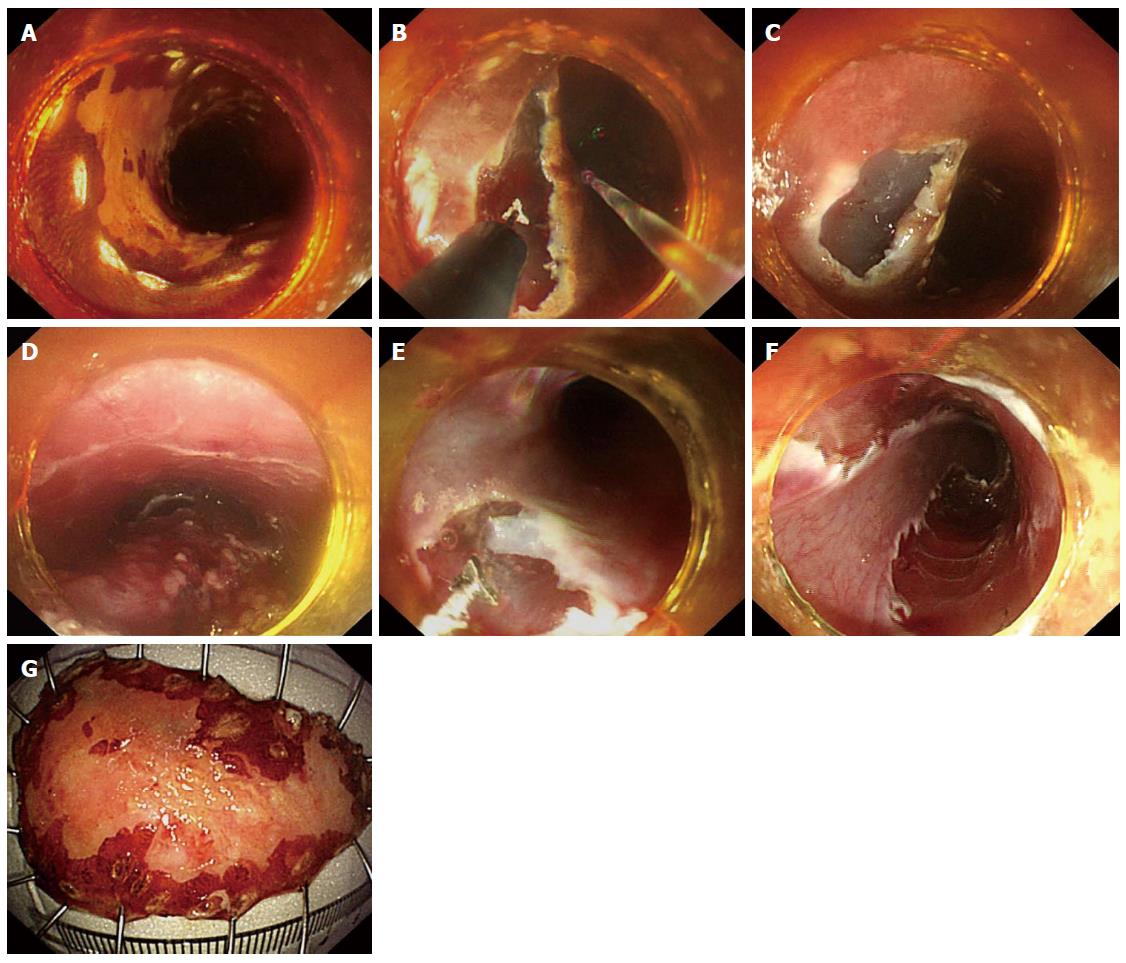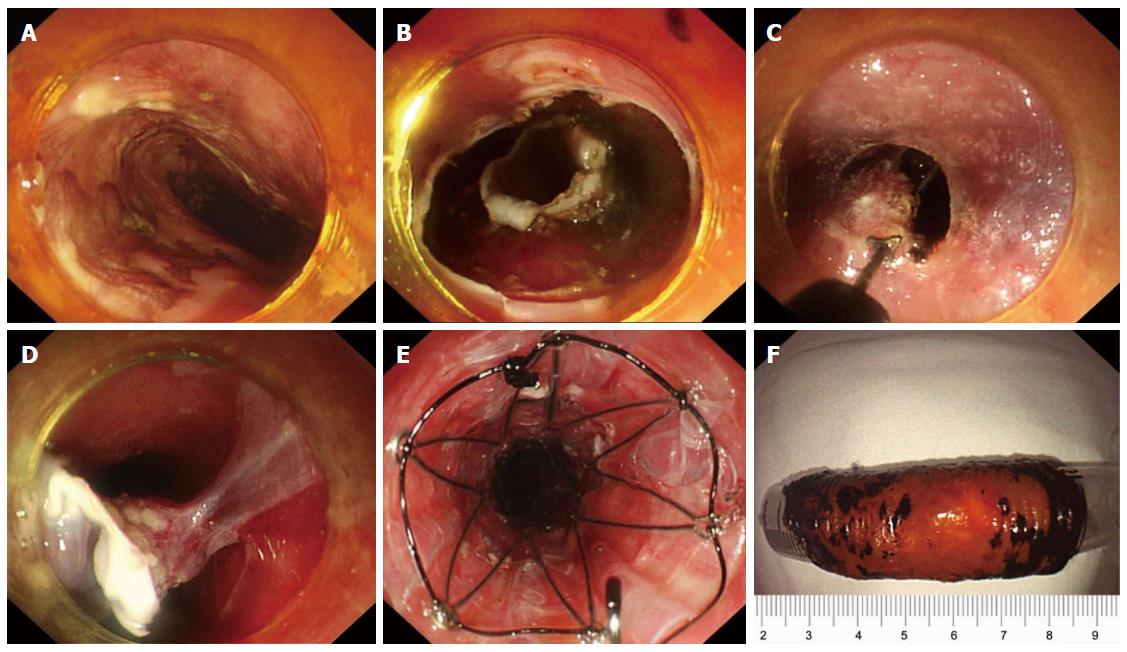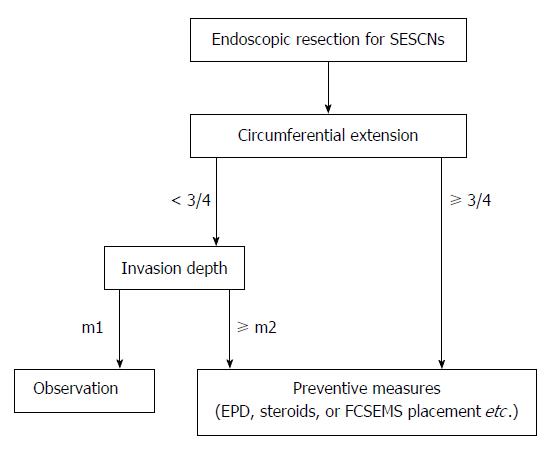Copyright
©The Author(s) 2016.
World J Gastroenterol. Jan 7, 2016; 22(1): 435-445
Published online Jan 7, 2016. doi: 10.3748/wjg.v22.i1.435
Published online Jan 7, 2016. doi: 10.3748/wjg.v22.i1.435
Figure 1 Indications for endoscopic resection by 2012 Japan Esophageal Society guidelines.
Figure 2 Schema of endoscopic submucosal tunnel dissection.
A: Evaluating and delineating the neoplasm; B: After marking the lesion margin, mucosal incision was performed in the anal-oral sequence; C: A submucosal tunnel was created from the oral to anal side; D: Lateral resection with an insulated-tip knife for complete removal of the lesion; E: Preventive coagulation on artificial ulcer.
Figure 3 Endoscopic submucosal tunnel dissection with a single triangle-tip knife.
A: Lugol staining to delineate the lesion, occupying almost half of the esophageal lumen. The margin was marked by argon plasma coagulation; B, C: Anal and oral incision was performed successively with a triangle-tip (TT) knife. Water jet helped entry into the submucosal tunnel; D: Submucosal tunnel was created from the oral to anal side; E: Lateral resection with a TT knife from the oral to anal side until reaching the anal incision; F: Complete en bloc resection was achieved in 52 min; G: The specimen, around 55 mm × 35 mm in size, was retrieved. Histopathological examination revealed a microinvasive squamous carcinoma limited in the lamina propria mucosa, free of lateral and vertical margin.
Figure 4 Double-tunnel endoscopic submucosal tunnel dissection for circumferential superficial esophageal neoplasms.
A: An 8 cm circumferential superficial esophageal cancer was showed by iodine staining, at 28–36 cm from the incisors; B: Circular incisions were successively performed at the anal and oral margins after marking; C, D: Two submucosal tunnels were created opposite each other. Two tunnels nearly covered the whole esophageal lumen, and the borders were narrow enough to be resected easily; E: A 14 cm retrievable, fully-covered esophageal stent was placed to prevent postoperative stenosis. F: The lesion was resected circumferentially, about 60 mm in length. From Zhai et al[20].
Figure 5 Proposed flow diagram of postoperative stricture prevention for superficial esophageal squamous cell neoplasms after endoscopic resection.
- Citation: Zhai YQ, Li HK, Linghu EQ. Endoscopic submucosal tunnel dissection for large superficial esophageal squamous cell neoplasms. World J Gastroenterol 2016; 22(1): 435-445
- URL: https://www.wjgnet.com/1007-9327/full/v22/i1/435.htm
- DOI: https://dx.doi.org/10.3748/wjg.v22.i1.435









